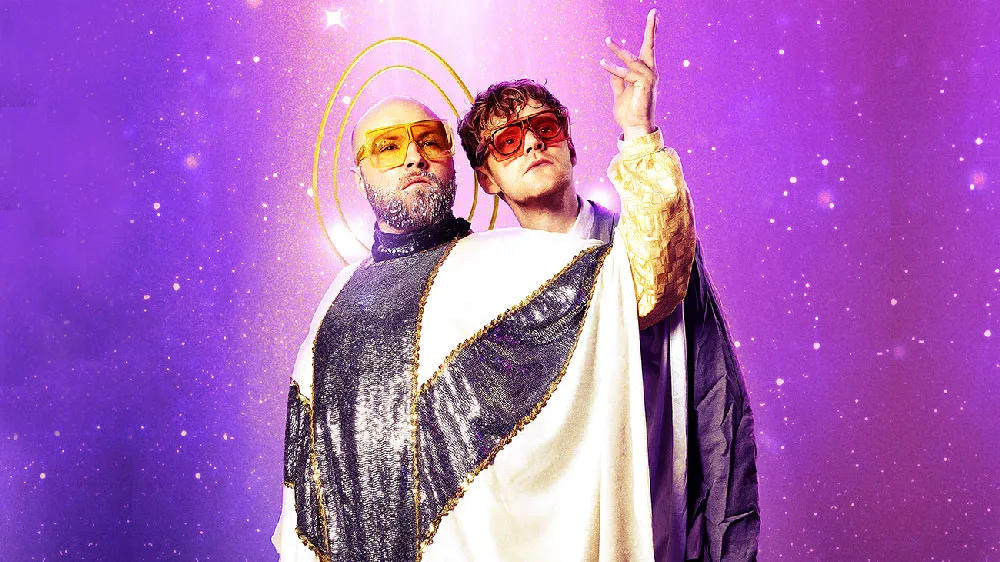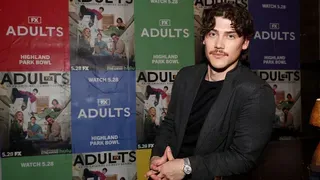February 21, 2014
Baseball Fan, 78, Comes Out
Kilian Melloy READ TIME: 4 MIN.
Activists often urge athletes and other celebrities to come out of the closet, believing their openness and acceptance will inspire others to do likewise. When Missouri football star Michael Sam came out as a gay man earlier this month in advance of the NFL draft, potentially hurting his draft position and economic prospects, it proved to be the inspiration for one local resident and baseball aficionado to discard the secret that has shrouded his life for several decades.
"I've never felt comfortable with coming out," Half Moon Bay resident Norm Coleman told the Bay Area Reporter. "I don't discuss the subject. But I have to say when I first read the story without knowing anything about [Sam] ... I saw how he was very courageous and strong. My goodness: we know how it is in professional sports. That's a 'man's man' thing. They don't tolerate gay guys, although that is certainly changing."
So Coleman, who recently turned 78, decided to be part of the change. He has been in and around baseball all of his life - a Brooklyn-born Dodgers fan who grew up watching Jackie Robinson and supplemented his income through the years doing scouting related tasks for numerous ball clubs. Homosexuality was the unspoken taboo, just as earlier there was an unspoken taboo keeping African American players out of the major leagues before Robinson broke the color barrier. Coleman decided it was time to speak up, come what may.
"It's possible I may lose some jobs," Coleman said. "I deal with a lot of baseball minor league general managers around the country. That could happen, but I don't think about it. I'm not concerned about them reading about me in the B.A.R., but yes, I'm concerned. Baseball is even more difficult than football. I can't imagine a player coming out in baseball."
Coleman has a prize-winning photography shop in Half Moon Bay but is better known among residents as the author and performer of a one-man play about baseball great Ty Cobb.
Coleman said his love affair with baseball started "when Jackie Robinson came to Brooklyn. Growing up in Brooklyn, I didn't know baseball was segregated. All I knew was a big fuss was being made when he came up. I became a big Brooklyn Dodgers fan at the time, not realizing what was involved with him personally. I've been a big baseball fan ever since."
It was while searching for a book on Robinson in the public library that Coleman stumbled across a book on Cobb, Like most current baseball fans, he only knew of Cobb by myth and rumor: great hitter, tough, even dirty, player; a symbol of baseball's segregation. But as he researched Cobb, he came to know what he terms his "other side," a side that truly loved and thought segregation should end.
"I became fascinated by the man who was clearly complicated and misunderstood," he said. "I make it very clear my show deals with racism. He was the poster boy for racism. I did two and a half years of research, reading and talking with people who knew him."
The work is distilled in an 80-minute script, which he has performed from Half Moon Bay to Cooperstown.
"I never wrote anything except business letters, and I never acted a day in my life until I started in the local repertory theatre," Coleman said with a laugh. "But I'm a big ham. The idea of being on stage really appealed to me."
A note of intrigue sounds in Coleman's voice when he talks about Cobb.
"He grew up in the South," he said. "His father was a liberal-minded man, an educated man, and admired Abraham Lincoln. He grew up in a middle class family and they had some African Americans who lived and worked on the farm. They were friends, boys he played with. But he was part of the American culture, and there were no African American players playing in major league baseball then."
"He does point that out," Coleman continued, "when he's asked by a reporter back then that he was the poster boy for racism and he had issues with blacks, he points out baseball was segregated and reminds the audience the military was segregated. He, however, had a big change of heart when he traveled around and saw black baseball in the 1930s and 1940s. Satchel Paige and all those guys. When he found out they were bringing Jackie Robinson up, he met privately with Commissioner Happy Chandler and said it's about time we ended segregation; it was a lousy rule. He became more open minded toward the end of his life."
Coleman talked about an educational foundation in Georgia that Cobb started to help the poor afford college "with no racial barrier" and a hospital for the poor he founded.
"I've talked with women who said they were the first women in their families to give birth in a hospital," Coleman said.
The idea of the unspoken barrier in baseball keeping out African Americans was something to which Coleman, as a closeted gay man, could relate.
"I've been gay all my life," he said. "When I went into the army - that was before 'Don't Ask, Don't Tell' - they asked me that question, was I gay, and of course I lied. You just didn't let anybody know, because if you did, you were court-martialed. I was stationed near New York City and would go to the gay bars on weekends. I was about as butch as your can get, but I was also as gay as you could be. I walked that double life."
In recent years, Coleman said, he's settled down.
"My son is 35 and he knows, but it's not a subject we talk about much," he said. "I'm not sure his wife knows. I don't go to gay bars. I don't drink. I live a very quiet life here in town. I'm at peace with myself. There's a line in the Bible that says yea shall know the truth and the truth shall set ye free."
Kilian Melloy serves as EDGE Media Network's Associate Arts Editor and Staff Contributor. His professional memberships include the National Lesbian & Gay Journalists Association, the Boston Online Film Critics Association, The Gay and Lesbian Entertainment Critics Association, and the Boston Theater Critics Association's Elliot Norton Awards Committee.




